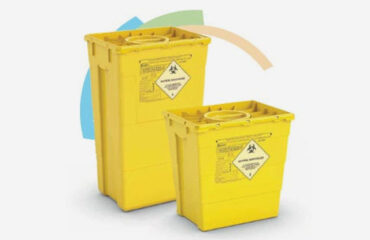The smart Trick of Reclaim Waste That Nobody is Talking About
The smart Trick of Reclaim Waste That Nobody is Talking About
Blog Article
The smart Trick of Reclaim Waste That Nobody is Discussing
Table of ContentsThe Buzz on Reclaim WasteSome Known Facts About Reclaim Waste.The Facts About Reclaim Waste UncoveredWhat Does Reclaim Waste Mean?Things about Reclaim Waste
Residential sewage waste refers to the waste and items from a household septic tank. The correct management and disposal of domestic sewer waste need fluid waste to be transferred to a sewer therapy plant where the appropriate methods and tools are applied to cleanse and dispose of waste.
Business waste frequently consists of potential threats, such as combustible products or a blend of fluid and strong waste items, and needs an advanced and thorough disposal procedure. The disposal of commercial waste commonly entails the filtering of waste prior to transport to guarantee risk-free and proper disposal. Hazardous waste is created from byproducts and overflow of industrial procedures and manufacturing.
This kind of waste can not make use of the exact same sewer administration transportation or processes as septic or industrial liquids. The commercial waste monitoring procedure requires the examination and testing of liquid waste before it goes through the disposal process (industrial wastewater treatment). Runoff waste is the liquid waste that comes from runoff and excess stormwater in highly booming locations or cities
Overflow waste can cause contamination and flooding if not dealt with appropriately. Learn extra about sewage system cleaning and waste administration. Ensuring correct waste monitoring can protect against catastrophes and reduce environmental damage. Both people in property settings and professionals in commercial or manufacturing sectors can take advantage of recognizing the procedures and laws of liquid waste management.
7 Easy Facts About Reclaim Waste Explained
Call PROS Providers today to find out about our waste monitoring and disposal services and the appropriate methods to take care of the liquid waste you create.
(https://disqus.com/by/reclaimwaste1/about/)Do you understand what takes place to your water when you disengage, flush the commode or drain the cleaning machine? No? Well, it deserves understanding. This supposed 'wastewater' is not just a crucial source yet, after treatment, will be released to our land, waterways or the ocean. Utilized water from commodes, showers, bathrooms, kitchen sinks, washings and commercial processes is called wastewater.

water used to cool down equipment or clean plant and equipment). Stormwater, a kind of wastewater, is runoff that streams from agricultural and metropolitan locations such as roofs, parks, gardens, roadways, courses and rain gutters right into stormwater drains, after rain. Stormwater flows without treatment straight to local creeks or rivers, eventually getting to the ocean.
The Single Strategy To Use For Reclaim Waste
In Queensland, the majority of wastewater is dealt with at sewer treatment plants. Wastewater is carried from residential or industrial sites through a system of sewers and pump terminals, known as sewage reticulation, to a sewer therapy plant.
The Division of Natural Resources advises regional federal governments concerning handling, operating and keeping sewage systems and therapy plants. In unsewered areas, city governments might call for homeowners to install private or home sewer therapy systems to treat residential wastewater from bathrooms, cooking areas, washrooms and washings. The Department of Natural Resources authorizes making use of family systems when they are verified to be effective.
A lot of stormwater obtains no treatment. useful link In some new class, therapy of some stormwater to get rid of clutter, sand and crushed rock has actually begun making use of gross pollutant catches. Wastewater treatment occurs in 4 phases: Gets rid of solid issue. Larger solids, such as plastics and various other objects incorrectly discharged to sewers, are gotten rid of when wastewater is passed via screens.
Uses little living organisms knows as micro-organisms to break down and remove continuing to be liquified wastes and fine bits. Micro-organisms and wastes are incorporated in the sludge.
The Ultimate Guide To Reclaim Waste
Nutrient elimination is not available at all sewer therapy plants since it requires pricey specialist equipment. Clear liquid effluent produced after treatment may still consist of disease-causing micro-organisms - liquid waste disposal melbourne.

This normally implies wastewater needs to be dealt with or impurities eliminated prior to it can be released to waterways. The majority of wastewater streams right into the sewerage system. Under the Act, city governments administer approvals and licences for ecologically appropriate tasks (Periods) entailing wastewater launches that could have a regional effect. The department administers approvals and permits to ERAs involving wastewater releases that may have a regional or statewide influence.
About Reclaim Waste
Surveillance gives accurate info about water top quality and can validate that licence problems are being met. The information acquired with monitoring gives the basis for making water high quality decisions.
Report this page